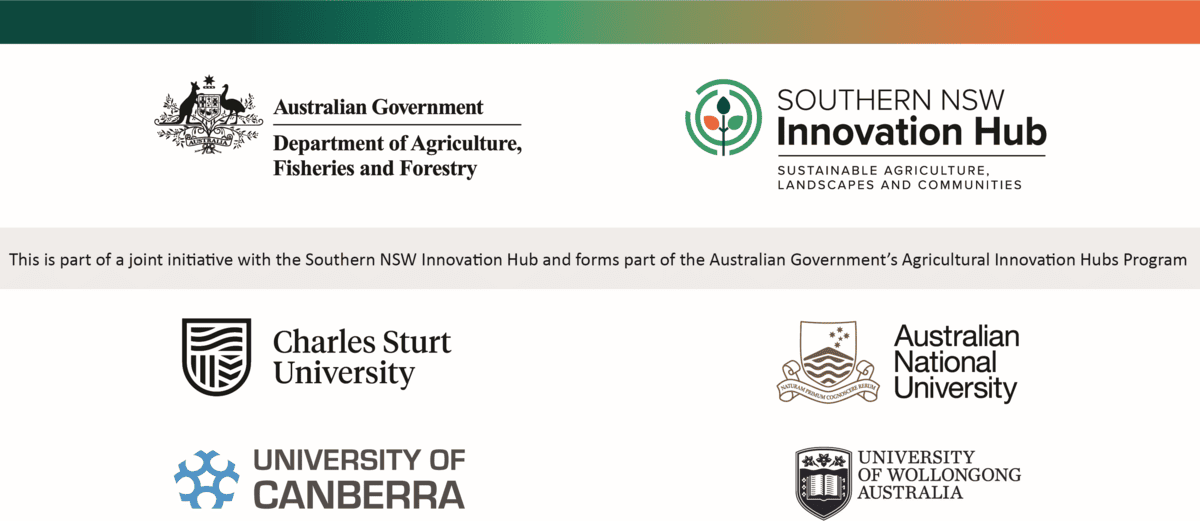Southern NSW Drought Resilience Adoption and Innovation Hub
- Home
- About us
-
Our projects
- AgTech ROI Calculator
- Baselining Drought
- Brungle-Tumut Aboriginal Community Garden
- Drought Adoption Officers
- Drought Management for Perennial Horticulture Plants
- Drought Resilient Mixed Farming System Trials
- Early Insights for More Resilient Communities Dashboard
- Emerging Researchers Network
-
Farm Water Management Planning
- Forewarned is Forearmed Climate Coaching
- Higher Degree by Research (HDR) Engage
-
Managing Biosecurity Risks
- Managing Rangelands for Drought Resilience
- Optimal Management of Soils and Available Water
-
Preparing with Hindsight
- Resilient Pasture Systems
- Regional Soils Coordinators
- RiskWi$e National Risk Management Initiative
- Saving Our Soils During Drought
- Stock Confinement Area Virtual Reality
- Our partners
- Drought resources
- Co-design
- Pathways to Impact
- News and media
- Contact us


